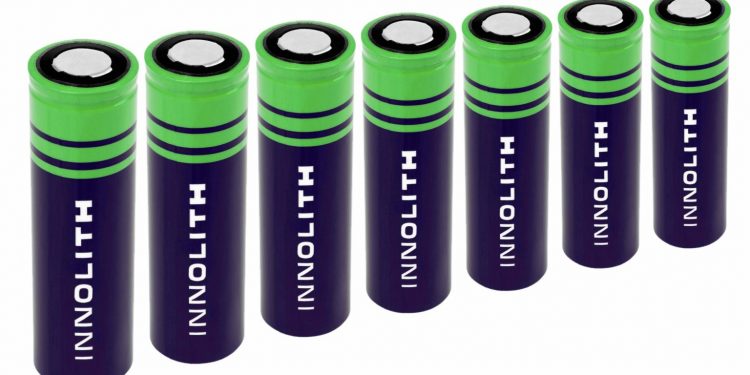Swiss battery cell developer Innolith has unveiled plans to commercialize its cutting-edge I-State platform for use in electric vehicles, marking a significant step towards advancing battery technology. Innolith's unique approach relies on a non-flammable inorganic electrolyte for its cells, offering several key advantages over conventional lithium-ion batteries.
Innolith's latest announcement highlights the remarkable capabilities of their I-State batteries, which can operate at higher voltages, reaching up to 5 volts, compared to the maximum 4.2 volts of traditional Li-ion battery cells. Additionally, these batteries boast an impressive temperature range, functioning effectively in temperatures ranging from -40°C to +60°C. When coupled with a graphite anode and an NMC811 cathode, Innolith reports that their commercialized cell achieves a remarkable gravimetric energy density of 300 Wh/kg and a volumetric energy density of 825 Wh/L.
In a strategic move, Innolith intends to produce these groundbreaking batteries through licensing partnerships with automotive, industrial, and battery companies, with further details about these partnerships to be revealed in due course. To support these ongoing negotiations, Innolith has signed letters of intent with five customers, committing to a production requirement of 100 MWh per year. Notably, within the automotive sector, Innolith is collaborating closely with three of the top ten automotive manufacturers and has recently entered into a letter of intent with a prominent electric vehicle manufacturer.
Konstantin Solodovnikov, CEO of Innolith, emphasized the pressing need for superior battery technology, stating, “The world needs better batteries to drive the transition to a greener economy for environmental, energy security, and economic efficiency reasons.” He added, “Conventional Li-ion has served us well for 40 years but has well-known limitations for the future. I-State goes further, costs less, and is environmentally more sustainable. This new technology will provide the EV battery for the next step in the world's transition to renewable energy. With future innovations in technology in our labs, we will be delivering even higher levels of energy density and other improved performance parameters in the near future.”

















